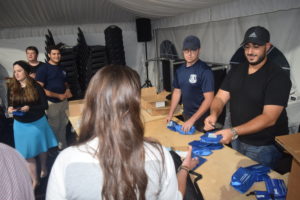
There’s a Yiddish saying: “A shikker iz a goy,” which translates to “an alcoholic is a non-Jew.”
Filled with sharp consonants, the phrase is harsh to say, and for Jews with substance abuse disorders or those recovering from addictions of any kind, the implication is even harsher.
“There is still an incredible amount of stigma in the Jewish community,” said Rabbi Ilan Glazer, a Baltimore-based rabbi and creator of Our Jewish Recovery, an online community for Jews in recovery across the country.
Yet Jews struggle with addiction, too, Glazer said, and because of the stigma within Jewish communities surrounding addiction, those Jews must struggle silently.
The American Addictions Center predicts that 20% of United States Jews have a history of addiction within their family.
Glazer has struggled with food addiction and codependency and is in recovery himself. He was hesitant to share that he was a rabbi in recovery because rabbis were supposed to give, not receive assistance. But because addiction is so stigmatized, many rabbis are not equipped to talk to congregants about the subject.
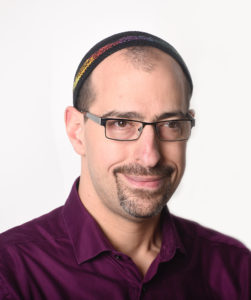
Courtesy of Rabbi Ilan Glazer
“I’ve heard people come into my group, and they say, ‘I went to my rabbi for support, and my rabbi had absolutely nothing to offer,’” Glazer said. “‘My rabbi said something like, ‘Well, if you hadn’t married a non-Jew, you wouldn’t have these issues.’”
Rabbinic schools don’t train rabbis to address addiction in their communities, Glazer said. There’s a belief that Jews don’t experience addiction or substance abuse disorders.
During the pandemic, those with substance abuse disorders have had a particularly difficult time.
At Amudim, an international service that provides clinical care for those struggling with addiction, mental illness and abuse, cases rose rapidly in the U.S. over the past two years, from 2,818 in 2019 to 4,371 in 2021. In previous years, cases had risen modestly by a couple hundred a year.
David Kushner, who works in government relations and special projects at Amudim and lives in Philadelphia, believes the growing numbers are an alarm bell for Jewish recovery resources and Jewish community members alike.
“Some of it was somewhat expected, but the depth and volume were not expected on this level,” he said. “Those that have been successfully in recovery — many people relapsed; and those who were struggling had a much harder time; and those that didn’t realize they had an issue — their issues really came to the surface.”
Because COVID lockdowns sent individuals to their homes and hindered social connections, those with addictions and substance abuse disorders lost support systems crucial to recovery.
“Addiction is a disease of isolation, of disconnection, of void of spirituality,” said Rabbi Yosef Lipsker of the Chabad-Lubavitch of Berks County.
Lipsker has been on the front line to mitigate the harms of isolation on those dealing with addiction. The Chabad has partnered with Caron Treatment Center in Wernersville since 1999. Over the pandemic, Lipsker has dropped off Shabbat dinners at Caron, challah and matzah ball soup stacked tightly in the trunk of his car every Friday afternoon.
Out of many Jewish movements, Chabad was the first to acknowledge addiction within the Jewish community and start providing Jewish-specific resources, Lipsker said. He cited the Lubavitcher Rebbe’s teaching to help “the weakest link” as his call to help those with addictions.
“I’m not here to create a rehab center,” Lipsker said. “I’m here to look at, assess and evaluate what’s going on, and when I see there’s a need for a certain idea, I jump right into it.”
Yet Jewish-specific resources are still few and far between. Jewish rehabilitation centers dot the country, such as Beit T’shuvah in Los Angeles, but local resources vary.
“The Jewish world has generally not put any funding behind this issue, nor have we thought about it in any systemic way,” Glazer said.
Jewish Federations and Jewish Family and Children’s services, including those in Greater Philadelphia, have only recently begun to provide resources to those struggling with addiction, Glazer said.
Some Jews have tried to turn to what’s available: 12-step programs and Alcoholics and Narcotics Anonymous meetings. But these resources aren’t accessible to everyone, said Rabbi Abby Michaleski, the rabbi at Beth Israel in Vineland, New Jersey, and a licensed addictions counselor who also is in recovery. Many NA and AA meetings take place in church basements or contain Christian liturgy, making some Jews feel unwelcome or uncomfortable.
“There’s this message that, as Jews, we don’t necessarily belong there,” she said.
The lack of NA and AA meetings in Jewish contexts sends the message that Jews aren’t welcome to talk about substance abuse in Jewish spaces either.
“It’s just another message that says we don’t have this problem or we don’t care about this problem,” said Marla Kaufman, executive director of the Jewish Addiction Awareness Network.
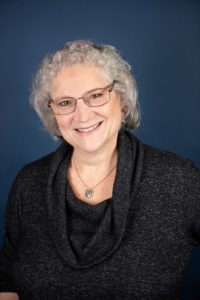
| Courtesy of Rabbi Abby Michaleski
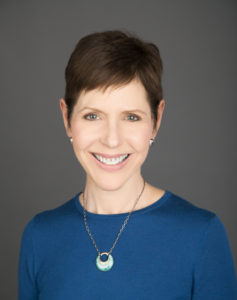
| Courtesy of Marla Kaufman
With addiction becoming something the Jewish community has become more aware of due to increasing numbers of those struggling, additional spiritual guidance has become available. More rabbis in recovery are sharing their stories around addiction, which, in turn, lets congregants know they have somewhere to turn if they are struggling.
After a year as the rabbi at Temple Sinai in Cinnaminson, New Jersey, Rabbi Michael Perice, who has been sober from opioids for more than 10 years, told his congregants about his substance abuse disorder. They were overwhelmingly supportive, he said.
“I knew I was in a place to share this with this community because I built up that level of support, that level of trust with my congregants,” Perice said. “I was honoring the trust they placed in me by showing them I trusted them as well.”
This isn’t the case for all congregations.
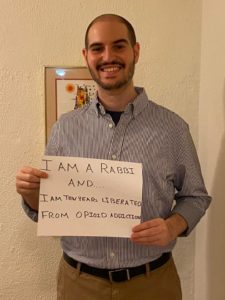
Courtesy of Rabbi Michael Perice
“Many times rabbis don’t feel like they can fully trust their congregants, and that’s a real shame,” Perice said. “Our congregations can handle way more than we often give them credit for.”
On a synagogue-wide level, Kaufman insists there is still more that can be done.
Synagogues can host serenity Shabbat services, in solidarity with those in recovery. They can have sober seders and design programming where alcohol is not served.
“When you open the dialogue, you reduce stigma,” she said.
[email protected]; 215-832-0741





